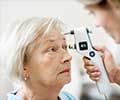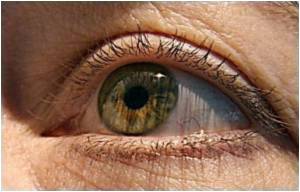Vitamin D deficiency is linked to retinal vein occlusion (RVO). Combining vitamin D with treatment improves visual acuity and central macular thickness in RVO patients.
- Significant association between vitamin D deficiency and retinal vein occlusion
- No difference in vitamin D levels between central retinal vein occlusion and branch retinal vein occlusion subtypes
- Combining vitamin D with intravitreal bevacizumab (IVB) treatment improves visual acuity and central macular thickness
Vitamin D deficiency in patients with retinal vein occlusion: a systematic review and meta-analysis
Go to source). The primary objective of the study was to evaluate the association between vitamin D levels and the incidence of RVO. Researchers aimed to determine if vitamin D deficiency is linked to an increased risk of developing RVO and to assess the potential impact of vitamin D supplementation in managing this condition.
The meta-analysis incorporated data from six studies with a total of 589 participants. Researchers compared vitamin D levels between patients with RVO and healthy controls. The principal outcome measures focused on determining differences in vitamin D levels between these two groups.
Vitamin D supplementation might enhance retinal vein occlusion treatment outcomes. #vitamind #medindia’
Vitamin D Deficiency and Retinal vein occlusion (RVO)
The meta-analysis revealed a significant association between vitamin D deficiency and an increased risk of RVO. The odds ratio indicates a robust correlation. Patients with RVO had a notable decrease in serum vitamin D levels by 1.91 ng/mL.No significant difference in vitamin D levels was found between central RVO (CRVO) and branch RVO (BRVO) subtypes. This suggests that vitamin D deficiency may not be specific to one RVO subtype over another.
The analysis included four studies reporting vitamin D deficiency prevalence. None of the studies found sufficient vitamin D levels in individuals with RVO, further highlighting the deficiency's role in the condition's development.
The Link Between Vitamin D Deficiency, Hypertension, and Retinal Vein Occlusion
Cardiovascular Health and Vitamin D: Vitamin D deficiency is known to be linked with various cardiovascular and cerebrovascular issues, which may extend to retinal vascular disorders. The correlation between vitamin D deficiency, hypertension, and increased vascular resistance indicates a possible connection to retinal vein occlusion.The Role of Hypertension: One study within the meta-analysis found no significant difference in vitamin D levels between hypertensive and non-hypertensive RVO patients. This suggests that the relationship between vitamin D and RVO might be independent of hypertension. However, future studies should report on hypertension prevalence to clarify its role further.
Impact of Vitamin D Supplementation
The research highlighted the potential benefits of combining vitamin D supplementation with intravitreal bevacizumab (IVB) treatment. This combined approach resulted in a significant reduction in central macular thickness and improved best-corrected visual acuity in CRVO patients, suggesting that vitamin D supplementation could enhance treatment outcomes.Further investigations, particularly clinical trials, are necessary to understand the impact of vitamin D supplementation on central macular thickness and best-corrected visual acuity. These studies could provide valuable insights for improving RVO treatment strategies.
The meta-analysis establishes a significant association between vitamin D deficiency and retinal vein occlusion. The results emphasize the need for further research to explore the mechanisms underlying this relationship and to evaluate the potential benefits of vitamin D supplementation in managing RVO. Addressing these gaps could lead to improved treatment approaches and better patient outcomes.
Reference:
- Vitamin D deficiency in patients with retinal vein occlusion: a systematic review and meta-analysis - (https://journalretinavitreous.biomedcentral.com/articles/10.1186/s40942-024-00571-3)
Source-Medindia















